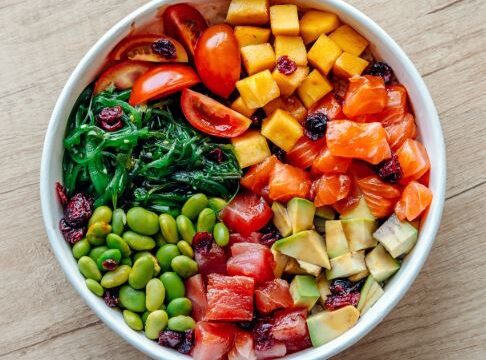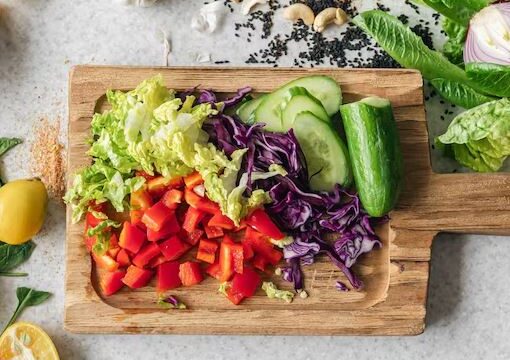Creating a positive daily routine starts with the choices you make from the moment you wake up. While habits like exercise, mindfulness, and time management are essential, food also plays a powerful role in shaping how your day unfolds. The way you fuel your body can set the tone for your energy, focus, and emotional balance. When food becomes part of a thoughtful daily rhythm, it can help you feel more grounded and optimistic throughout the day.
Building a routine around nourishing meals does not mean following a strict diet. Instead, it’s about developing simple, enjoyable eating habits that support your goals and make your days flow more smoothly. Food can serve as both fuel and comfort, helping you begin your day with purpose, sustain energy through work or study, and wind down peacefully at night.
Morning: Starting the Day with Purpose
The morning meal sets the foundation for how you feel both mentally and physically. A balanced breakfast provides steady energy and helps you start your day with clarity and motivation. When you skip breakfast or rely on processed foods high in sugar, your blood sugar may spike and crash, leaving you feeling tired or irritable later.
To create a positive start, focus on whole foods that combine complex carbohydrates, protein, and healthy fats. Oatmeal topped with fruit and nuts, a vegetable omelet with whole-grain toast, or a smoothie made with greens and seeds are great examples. The key is to choose foods that give long-lasting energy rather than a quick burst followed by fatigue.
Taking a few moments to enjoy your meal mindfully can make a big difference too. Eating without distractions allows you to appreciate flavors, feel satisfied, and begin your day with calm intention. This small act of slowing down can become a form of morning meditation that sets a peaceful tone for the hours ahead.
Midday: Keeping Your Energy Steady
How you eat at lunchtime affects your afternoon mood and productivity. Meals that are too heavy may lead to sluggishness, while skipping lunch can cause irritability or loss of concentration. A positive midday routine includes eating at a regular time and choosing foods that balance energy and comfort.
Think of lunch as an opportunity to refresh your body and mind. Include lean proteins such as beans, lentils, or fish; fiber-rich vegetables; and whole grains like brown rice or quinoa. Adding a variety of colors to your plate—greens, oranges, reds, and purples—ensures that you’re getting a range of vitamins and antioxidants that support both physical and mental well-being.
If your schedule keeps you busy, prepare simple lunches in advance. Packing a homemade salad or grain bowl allows you to avoid last-minute fast food choices and gives you control over the quality of what you eat. When food supports your energy instead of draining it, the rest of your routine naturally feels more balanced and productive.
Afternoon: Healthy Snacking for Focus
The afternoon is often when energy begins to dip. Many people reach for coffee or sugary snacks at this point, but these choices may only offer temporary relief. Instead, consider snacks that provide slow, steady nourishment. A handful of almonds, apple slices with nut butter, or yogurt with berries can help keep your mind alert and your body satisfied.
Snacking wisely prevents the energy rollercoaster that can disrupt your concentration and mood. It also reinforces the idea that caring for your body is part of your routine, not an afterthought. Keeping healthy snacks available at your desk or in your bag helps you stay consistent and avoid impulsive eating decisions that leave you feeling sluggish.
Evening: Winding Down with Nourishment
Dinner marks the transition between the active part of your day and the time to relax. What you eat in the evening can affect how well you rest and how you feel the next morning. Meals that are too heavy or eaten too late can interfere with sleep, while balanced dinners promote comfort and relaxation.
Choose lighter meals that are rich in vegetables, whole grains, and moderate protein. A hearty vegetable soup, a stir-fry with tofu and brown rice, or grilled salmon with roasted vegetables are simple yet satisfying options. These foods provide nourishment without overloading your digestive system before bedtime.
Creating a peaceful atmosphere during dinner can make it an anchor of your daily routine. Eating at the table, slowing your pace, and turning off screens help you connect with your meal and with anyone you share it with. This mindful approach allows you to unwind from the day and prepare your mind for rest.
Hydration and Rhythm Throughout the Day
Along with your meals, hydration is another key part of a positive routine. Water supports every function in the body, including digestion, circulation, and brain activity. Many people confuse thirst with hunger, leading to unnecessary snacking. Keeping a water bottle nearby helps you stay refreshed and focused.
Herbal teas or infused waters can also become part of your daily rhythm. Drinking warm tea in the morning or evening can signal your body to wake up or relax. These small rituals transform hydration into a moment of mindfulness that enhances your overall sense of balance.
Food as a Form of Self-Respect
Using food to build a positive daily routine is about more than nutrition—it’s about developing self-respect and consistency. When you make thoughtful food choices, you reinforce the idea that your well-being matters. Each meal becomes a message to yourself that you value your energy, focus, and peace of mind.
Cooking at home when possible also strengthens this connection. Preparing your meals gives you a sense of control and creativity. It allows you to experiment with flavors, discover new ingredients, and find satisfaction in taking care of yourself. Even simple actions, like chopping vegetables or seasoning a dish, can feel grounding after a busy day.
Building Long-Term Positivity Through Food
Over time, the rhythm you create with your meals can transform the way your entire day feels. When you start the morning with nourishment, maintain steady energy through balanced eating, and end the evening with comfort, you give your body and mind the support they need to thrive.
You may notice improvements in your focus, sleep, and emotional balance. But more importantly, you’ll build a sense of stability that allows you to handle challenges with greater calm. Food becomes not just a physical need, but a foundation for emotional and mental resilience.
A positive daily routine begins with small choices—like taking time for breakfast, staying hydrated, or eating dinner without distractions. Each of these actions contributes to a life that feels more harmonious and intentional. When you let food support your rhythm instead of working against it, your days begin to flow with greater purpose and joy.






